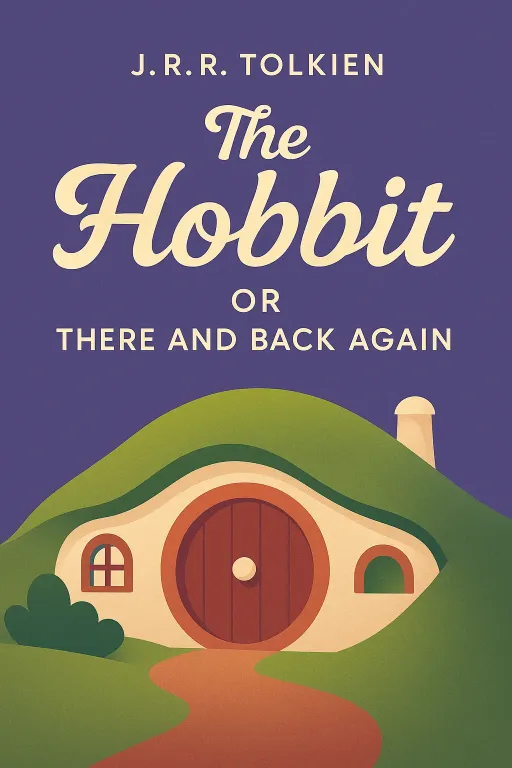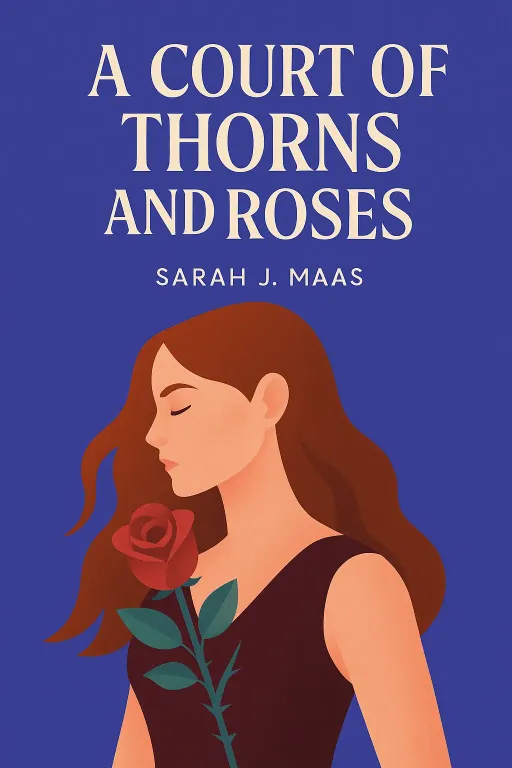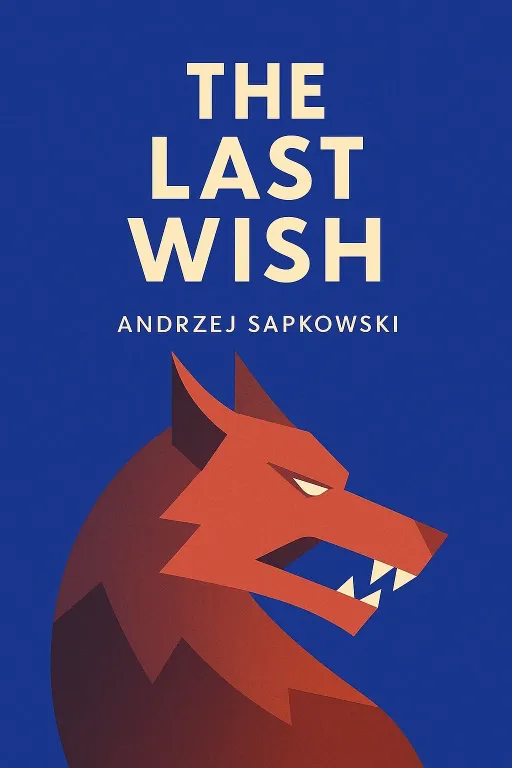
The Hobbit's Hidden War
11 minGolden Hook & Introduction
SECTION
Daniel: What if the bravest act in a war isn't fighting, but committing a strategic betrayal? What if the real hero of a grand adventure is the one who tries to give the treasure away, not the one who dies to protect it? Sophia: That’s a fascinating question. It feels so counterintuitive. And you’re telling me this is the central idea of a book most of us remember as a charming bedtime story about a short fellow who goes on a trip? Daniel: That's the moral puzzle at the heart of J.R.R. Tolkien's The Hobbit, or There and Back Again. Sophia: A book most of us think of as a simple children's adventure story. I mean, the legend is that Tolkien himself, a serious Oxford professor of Anglo-Saxon, just started writing it on a whim while grading exam papers. He scribbled "In a hole in the ground there lived a hobbit" on a blank page and the rest is history. Daniel: Exactly. But beneath that charming surface, this veteran of World War I poured in a lifetime of thought on heroism, greed, and the immense cost of conflict. It’s far more than just a prelude to The Lord of the Rings; it’s a profound story in its own right. Sophia: And a story that, interestingly, features no female characters at all. A true product of its 1937 publishing date, but one that still won major awards and praise from figures like C.S. Lewis. Daniel: It did. And today, we're going to explore the two powerful, competing journeys at its core: the one that builds a hero, and the one that corrupts a king.
The Accidental Hero: Redefining Courage
SECTION
Sophia: So where do we see this unconventional heroism? Because let's be honest, Bilbo Baggins starts out as the least heroic person imaginable. He loves his pantry, his armchair, and his predictable life. He literally faints at the mere thought of an adventure. Daniel: He really does. He tells Gandalf that adventures are "Nasty disturbing uncomfortable things! Make you late for dinner!" That’s his starting point. His heroism isn't a pre-existing quality; it's forged in the dark, under immense pressure. The first real test comes when he's lost deep under the Misty Mountains, in the dark, alone. Sophia: Right, after the escape from the goblins. He's completely terrified. Daniel: Utterly. And it's there he finds the ring and then stumbles upon Gollum. And this is where we see his unique brand of courage emerge. He doesn't have a sword he can wield effectively yet, he has no strength to speak of. All he has are his wits. He engages Gollum in a game of riddles, where the stakes are literally his own life. Sophia: The riddles are so classic. "A box without hinges, key, or lid, yet golden treasure inside is hid." An egg. It’s a battle of intellect, not brawn. Daniel: Precisely. And Bilbo holds his own, matching this ancient, cunning creature riddle for riddle. But the winning moment is pure desperation. He can't think of another riddle, and he puts his hand on the ring in his pocket and asks aloud, "What have I got in my pocket?" Sophia: Hold on, isn't that just luck? He finds the most powerful object in his world by complete accident. He asks the winning riddle by accident. Is he really a hero at this point, or just incredibly fortunate? Daniel: That’s the brilliant part. Tolkien, especially after he revised this chapter to better fit with The Lord of the Rings, makes it clear that heroism isn't about the absence of luck; it's about what you do with it. The original 1937 version had Gollum willingly betting the ring and showing Bilbo out. But Tolkien changed it. In the version we all know, Gollum is treacherous, and when he loses, he plans to kill Bilbo anyway. Sophia: And that’s when Bilbo discovers the ring makes him invisible. Daniel: Yes, another stroke of luck. But the truly heroic moment is what follows. Bilbo, invisible, stands at the exit, with Gollum blocking his path. He has a sword. He could easily kill Gollum and escape. The text says a "shudder of pity" goes through him. He sees Gollum for what he is: a miserable, lonely creature. And in that moment, he chooses mercy. He leaps over Gollum's head and runs for freedom. That choice—to show pity when he holds all the power—is the first true sign of the hero Bilbo will become. Sophia: Wow. So his courage isn't about being a great fighter, but about having a strong moral compass, even when he's terrified. Daniel: Exactly. It's a quiet, internal form of courage. He uses the ring to save the dwarves from the giant spiders in Mirkwood, not by killing them all in a frontal assault, but by taunting them, leading them on a chase, and cutting his friends free while invisible. He uses his wits and his tools, but his motivation is always to protect others. He’s a burglar, a trickster, a survivor—and that’s a very different kind of hero.
The Dragon's Sickness: When Heritage Becomes a Curse
SECTION
Daniel: And Bilbo's growing moral courage stands in stark contrast to the journey of the dwarves' leader, Thorin Oakenshield. His quest starts as something deeply noble—reclaiming his ancestral home and treasure from the dragon Smaug. Sophia: It's a classic epic motivation. He's the rightful king returning to claim his throne. You want to root for him. He's trying to restore his people's honor and home. Daniel: Absolutely. And in the beginning, he's a proud, but respectable leader. But as they get closer to the Lonely Mountain, and closer to the gold, a change occurs. Tolkien calls it "dragon-sickness." It’s a powerful metaphor for a greed so all-consuming that it becomes a curse. Sophia: The sickness of the dragon, Smaug, infects the one who seeks his treasure. Daniel: Precisely. The moment they enter the mountain and see the vast hoard of gold, the quest for home is forgotten. It becomes a quest for gold. Thorin's focus narrows until only one object matters: the Arkenstone, the Heart of the Mountain. He tells the others, "That stone of all the treasure I name unto myself, and I will be avenged on anyone who finds it and withholds it." Sophia: That's a chilling thing to say to your friends who have journeyed all this way with you. It’s no longer about 'our' heritage; it's about 'my' treasure. Daniel: And this is where the tragedy unfolds. After Smaug is killed—not by the dwarves, but by Bard of Lake-town—the men and elves come to the mountain. Their town has been destroyed, they are homeless and starving, and they ask for a share of the treasure as recompense. A fourteenth share, which was Bilbo's promised reward. Sophia: I can see that, but isn't Thorin's reaction somewhat understandable? He's just reclaimed his kingdom, and immediately two armies show up on his doorstep demanding a cut. Why should he trust them? It feels like a complex political situation, not just simple greed. Daniel: It is complex, and that's what makes it so brilliant. From Thorin's perspective, he's defending his birthright. But the dragon-sickness has blinded him to justice and compassion. He sees only thieves at his gate, not desperate allies. He refuses to part with a single coin. He barricades himself inside the mountain, a king sitting on a pile of gold, unable to use it, just like Smaug did. Sophia: So he essentially becomes the dragon. That’s a powerful idea. It’s not just about wanting money. It's a possessiveness so absolute that it destroys all reason and relationships. Daniel: It's like a family fighting over a will. They spend so much on lawyers and emotional energy that they destroy the very inheritance and relationships they were trying to preserve. Thorin is willing to start a war with his potential allies, a war that would get all his companions killed, rather than part with a fraction of the gold. The treasure has become a curse.
Synthesis: The Climactic Choice & The Two Paths
SECTION
Sophia: So you have Bilbo, the accidental hero who values peace and a good meal, and Thorin, the noble leader who has been consumed by his quest. It all comes to a head with the Arkenstone, doesn't it? Daniel: It does. Because while Thorin is obsessing over it, Bilbo has already found it. He had it in his pocket the whole time. And he sees the stalemate, the looming war between the dwarves, elves, and men. He knows Thorin will never yield. So he makes a choice. Sophia: The betrayal you mentioned at the start. Daniel: The ultimate act of his unconventional heroism. He sneaks out of the mountain at night, goes to the camp of the men and elves, and gives them the Arkenstone. He tells Bard, "It will aid you in your bargaining." He gives away the most valuable piece of the treasure to prevent a war. He's not stealing for personal gain; he's giving away treasure to save lives. Sophia: And Thorin’s reaction is pure fury. He calls Bilbo a "miserable hobbit" and an "undersized burglar" and is about to throw him off the ramparts when Gandalf appears and saves him. Thorin is completely lost to his rage. Daniel: He is. He agrees to trade a fourteenth of the treasure for the stone, but his heart is full of hate. And it's only on his deathbed, after the catastrophic Battle of Five Armies—a battle against goblins that unites them all too late—that he finally understands. Sophia: His last words to Bilbo are just heartbreaking. Daniel: They are the entire point of the book. He says, "There is more in you of good than you know, child of the kindly West. Some courage and some wisdom, blended in measure. If more of us valued food and cheer and song above hoarded gold, it would be a merrier world." Sophia: Wow. That's the book's thesis statement, delivered by the one character who learned it too late. Bilbo knew it all along. His treasure was always the thought of his warm hobbit-hole, his pantry, and a quiet life. Daniel: And that’s the journey. Bilbo leaves home to find treasure, but the real treasure he finds is the courage and wisdom within himself. Thorin leaves home to find treasure, and in finding it, he loses himself.
Synthesis & Takeaways
SECTION
Daniel: In the end, The Hobbit isn't just an adventure story. It's a profound meditation on what we value. Tolkien, having seen the horrors of war, seems to be arguing that the grand quests for power, for gold, for national glory—these are the things that lead to ruin. Sophia: While the small, quiet virtues—pity, friendship, a love of simple comforts—are the things that can save the world. Bilbo's heroism is the heroism of decency. Daniel: Exactly. The greatest treasure Bilbo brings back from his journey isn't the small chest of gold and silver he accepts. It's a new perspective on the world and his place in it. He loses his reputation among the stuffy hobbits—they think he's gone queer—but he gains the entire world. He writes poetry, he talks with elves, he lives a life rich with experience, not just possessions. Sophia: It makes you wonder, in our own lives, what 'treasures' are we holding onto so tightly that we risk losing what really matters? What's our Arkenstone? Daniel: That's the question Tolkien leaves us with. We'd love to hear your thoughts. What, to you, makes a true hero? Is it the one who fights for the treasure, or the one who knows when to give it away? Let us know on our social channels. Sophia: It’s been a journey. Thanks for exploring it with us. Daniel: This is Aibrary, signing off.

